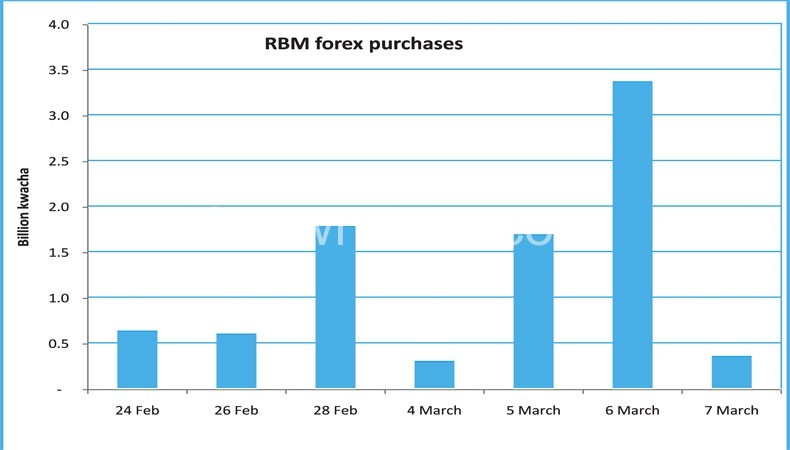Interest rates may fall to 30 percent

Commercial bank lending rates may fall further by five percentage points to 30 percent due to Reserve Bank of Malawi (RBM) forex purchases and Treasury Bills (T-Bills) maturity and the consequent liquidity improvement.
NBM Capital Markets investment and equity analyst Christopher Kisyombe, commenting on recent RBM forex purchases from the market, said there are a number of impacts the move will have, including liquidity improvement, falling T-bills rates and a lagged fall in commercial lending rates.
“There is a relationship between improved liquidity, interbank lending rates, T-bills rates and commercial lending rates. The recent improvement in liquidity, and the falling interbank lending rates will lead to falling commercial lending rates,” said Kisyombe.
However, Kisyombe said lending rates which currently hover above 35 percent will cap at 30 percent due to the current high inflation rate. The January 2014 inflation rate rose to 25.9 percent.
Reports indicate that the RBM has recently been buying forex from the market and the expert said although this is primarily meant to increase the central bank’s forex reserves taking advantage of the improved availability of forex on the market, it will also impact on market liquidity.
In an interview on Tuesday, RBM spokesperson Mbane Ngwira said the central bank is taking advantage of the surplus forex on the market while building official reserves which have risen to about 2.5 months import cover.
“We already had plans to buy forex from the market, but it has started earlier than anticipated. The forex purchases may increase liquidity on the market which we hope will have a positive impact on interest rates. Regardless of the recent injections we still have more room on the market to push in some kwacha,” he said. Ngwira added that commercial banks are also selling forex to the central bank to adhere to forex regulatory exposure limits and that earnings on forex are small.
RBM’s money market reports indicate that the central bank between February 24 and March 7 bought foreign exchange—alternatively injected kwachas—from the market amounting to over K8 billion.
According to reports improved market liquidity has pushed inter-bank lending rates—the rate at which banks lend to each other—to fall close to 11 percent from an average 21.6 percent in the week ending February 7.
T-bills rates, another factor that influences interest rates, also fell to an average 15 percent across all tenors last week from 21 percent in the week ending February 7.
Recently, commercial banks, including market leaders Standard Bank and National Bank of Malawi (NBM), reduced their lending rates citing improvements in some economic fundamentals and a better economic outlook.





